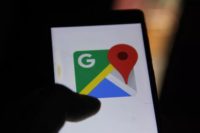Google’s Face Match technology isn’t everywhere yet, but it’s always looking. Find out what’s happening with your face data and what you can do to stop it. Google’s largest smart display, the Google Nest Hub Max, includes a controversial feature that’s always watching. Face Match, the name Google calls the technology, keeps a digital eye out for faces passing by. When it recognizes yours, it displays content just for you: photos, messages, appointments and even how long of a commute you can expect. Read full story here: Google Knows What You Look…
Read MoreTag: Google
Google Has Access To Detailed Health Records On Tens Of Millions Of Americans | Ars Technica
Google quietly partnered last year with Ascension—the country’s second-largest health system—and has since gained access to detailed medical records on tens of millions of Americans, according to a November 11 report by The Wall Street Journal. The endeavor, code-named “Project Nightingale,” has enabled at least 150 Google employees to see patient health information, which includes diagnoses, laboratory test results, hospitalization records, and other data, according to internal documents and the newspaper’s sources. In all, the data amounts to complete medical records, WSJ notes, and contains patient names and birth dates.…
Read MoreMore Than 1,000 Android Apps Harvest Data Even After You Deny Permissions | CNET
Permissions on Android apps are intended to be gatekeepers for how much data your device gives up. If you don’t want a flashlight app to be able to read through your call logs, you should be able to deny that access. But even when you say no, many apps find a way around: Researchers discovered more than 1,000 apps that skirted restrictions, allowing them to gather precise geolocation data and phone identifiers behind your back. Read full story here: More Than 1,000 Android Apps Harvest Data Even After You Deny…
Read MoreLaw Enforcement Taps Google’s Sensorvault For Location Data, Report Says | CNET
Police have used information from the search giant’s Sensorvault database to aid in criminal cases across the country, according to a report Saturday by the New York Times. The database has detailed location records from hundreds of millions of phones around the world, the report said. It’s meant to collect information on the users of Google’s products so the company can better target them with ads, and see how effective those ads are. Read full story here: Law Enforcement Taps Google’s Sensorvault For Location Data, Report Says | CNET
Read MoreAmazon, Google, AI And Us: Are We Too Close For Comfort? | CNET
Beyond facial recognition, we’re giving smart devices and platforms our intimate biometric details. Iris scanning is a powerful identification tool. Computers aren’t just getting smarter, they’re studying us more closely too. Whether it’s in the name of public safety, fraud protection or simple convenience, we’re feeding AI systems details that identify us and track our comings and goings. Read full story here: Amazon, Google, AI And Us: Are We Too Close For Comfort? | CNET
Read MoreGoogle+ Bug Gave Developers Access To Non-Public Data From 52.5M Users | TechCrunch
Google+ was a bit of a disaster for the company when it was still alive, and now that it’s walking dead, it’s becoming even more of a stone around its neck. After disclosing a major security bug in October that affected just under half a million users, it announced that the service would shut down in August 2019. But things are getting worse. Today, the company announced a new privacy hole, one that it found last month, that left some data from about 52.5 million users up for grabs from…
Read MoreGoogle+ To Shut Down After Coverup Of Data-Exposing Bug | TechCrunch
Google is about to have its Cambridge Analytica moment. A security bug allowed third-party developers to access Google+ user profile data since 2015 until Google discovered and patched it in March, but decided not to inform the world. When a user gave permission to an app to access their public profile data, the bug also let those developers pull their and their friends’ non-public profile fields. Indeed, 496,951 users’ full names, email addresses, birth dates, gender, profile photos, places lived, occupation and relationship status were potentially exposed, though Google says it…
Read MoreStudy Calls Out ‘Dark Patterns’ In Facebook And Google That Push Users Toward Less Privacy | TechCrunch
More scrutiny than ever is in place on the tech industry, and while high-profile cases like Mark Zuckerberg’s appearance in front of lawmakers garner headlines, there are subtler forces at work. This study from a Norway watchdog group eloquently and painstakingly describes the ways that companies like Facebook and Google push their users towards making choices that negatively affect their own privacy. It was spurred, like many other new inquiries, by Europe’s GDPR, which has caused no small amount of consternation among companies for whom collecting and leveraging user data…
Read MoreCanadians At Risk Of Being ‘Data Cows’ Absent Big Data Strategy, Documents Show | CBC News
Artificial intelligence could give internet giants like Facebook and Amazon even more power to reshape the Canadian economy, threatening the viability of domestic businesses, researchers warn. A December presentation to senior civil servants said that Canadian companies were losing ownership of — and access to — data to the likes of Facebook, Amazon, Netflix and Google, requiring a federal policy response. Artificial intelligence “will reinforce this trend,” presenters from the National Research Council warned top officials, adding that a national data strategy would be necessary to prevent Canada from becoming…
Read More









